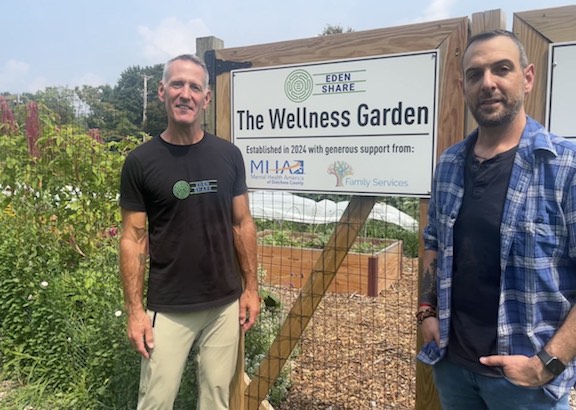In this interview, Comms Manager Haley converses with farmer and community gardener Scott Pidgeon, co-founder of Eden Share, Inc. Eden Share is a community garden based in Poughkeepsie, New York, and serves to connect people, plants, and the health of the planet. Its mission is to to champion regenerative agriculture which promotes healthy food and land, healthier bodies and minds, and a welcoming space for nonprofits and the community of Dutchess County.
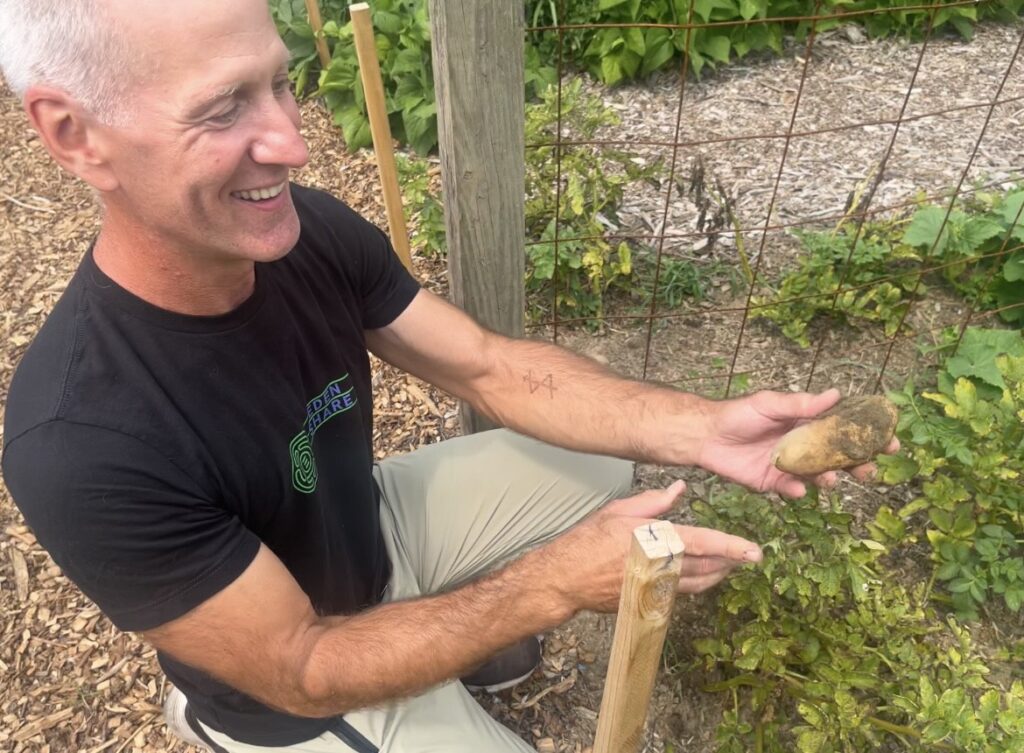
How long have you been farming, and what do you produce?
My name is Scott Pidgeon with Eden Share. I have been sustainably and organically farming since 2019 with my partner David Garland (pictured above) when we started Queens Farms. I worked on a conventional farm in my adolescence, and I have gardened my entire life. Our new nonprofit, Eden Share, is bringing these ecologically sound practices to underserved communities in the Hudson Valley to produce healthier bodies, minds, and lands that also feed our community and protect our waterways.
Why do you identify as an Ocean-Friendly Farmer?
We identify as “ocean-friendly” farmers because our practices protect our waterways and oceans by adhering to simple standards. No synthetic chemicals, pesticides, or herbicides, and we strongly believe in minimal or no till farming practices to reduce erosion, irrigation, and run off. I was born and raised on the Hudson River, enjoyed fishing in the Long Island Sound as a child, and I have become an avid kayaker as an adult.
What specific techniques do you practice that are considered ocean-friendly?
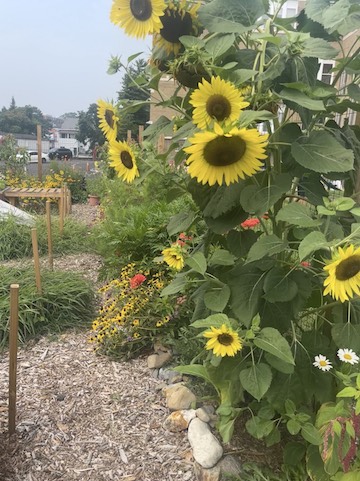
There are many techniques that we practice that minimize our impact on waterways and the oceans. First and foremost, we try to build up healthy soils. This means we only use natural inputs to improve the biological functions. We do not use synthetic chemicals, pesticides, or herbicides. We minimally till or turn soil to preserve the bacteria, fungi, micro and macro-organisms in the soil that enable plants to feed. We also conserve water and use mulch and barriers to retain moisture.
We also follow Integrated Pest Management (IPM) practices to further minimize the use of organic pest controls. The food chain is a food web and we need to be mindful not to throw the ecology in our gardens and farms out of balance by doing too much. We also use the same technique for soil inputs, so we do not over-fertilize our crops.
What value most aligns with the way you choose to farm?
Climate change is affecting us all and we need to change our behaviors to improve our condition. The oceans are in peril, yet they have the most significant impact on our climate.
We believe that folks want to do the right thing but sometimes they think they can’t do anything. The reality is that even our small decisions and actions, when combined, can have a huge impact. Eden Share believes that gardening, farming, and nature are profound teachers. We are bringing this message to underserved communities that may be disconnected from nature and need to be reconnected. Positive interactions in nature can have a profound effect on our physical, emotional, and psychological well-being. It feels good to be active, to care for plants, and care for our planet.
What roadblocks do you think may prevent other farms from practicing ocean-friendly techniques?
There are a few roadblocks, most notably for conventional farm. Changing the way they have grown crops and accepting new science that tells them how important the soil and its biological health is to growing healthy plants can be costly and takes courage. Change is hard and the risk and expense can be high. However, there are many advantages to no-till, organic practices that will be realized within a couple years. Less erosion, less cost for inorganic chemical inputs, less reliance on irrigation systems, and healthy and stronger plants that produce better crops that can command a higher price.
How do you want to be supported as an ocean-friendly farmer by IOC and our farming network?
It would be great to be acknowledged as an “Ocean Friendly” farmer through official certification by the IOC. I am not sure the public is aware of the impact of conventional farming on our waterways and oceans, and increased education and advocacy would be important to getting the message out. Educating farmers, and just as importantly, residential landowners, about the detrimental effects of using chemical fertilizers, insecticides, and herbicides on their farms, gardens and lawns could be crucial to changing behaviors. As I said, I believe that people want to do what is best for the planet, but they receive mixed messages about what that means. A clear message would be to tell folks to use less or no synthetic chemical fertilizers, pesticides, or herbicides on their property for the health of the lands, waters, and people.
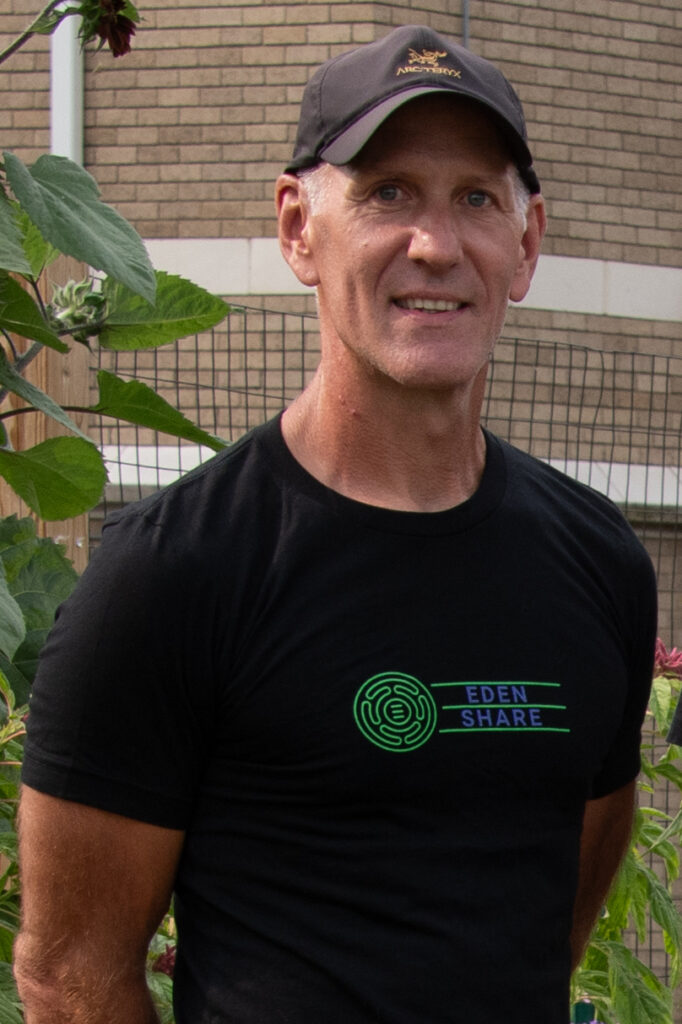
Scott Pidgeon is one of Inland Ocean Coalition’s Ocean-Friendly Farming Partners based in Poughkeepsie, NY. He has more than 25 years professional experience working in mental health, substance abuse treatment, and quality. His passion for farming began in his teens, while working at a local farm in Dutchess County. When he’s not tending gardens and vegetables, Scott enjoys reading and spending time with his family. Scott firmly believes his cats should be listened to intently but ignored whenever possible.
